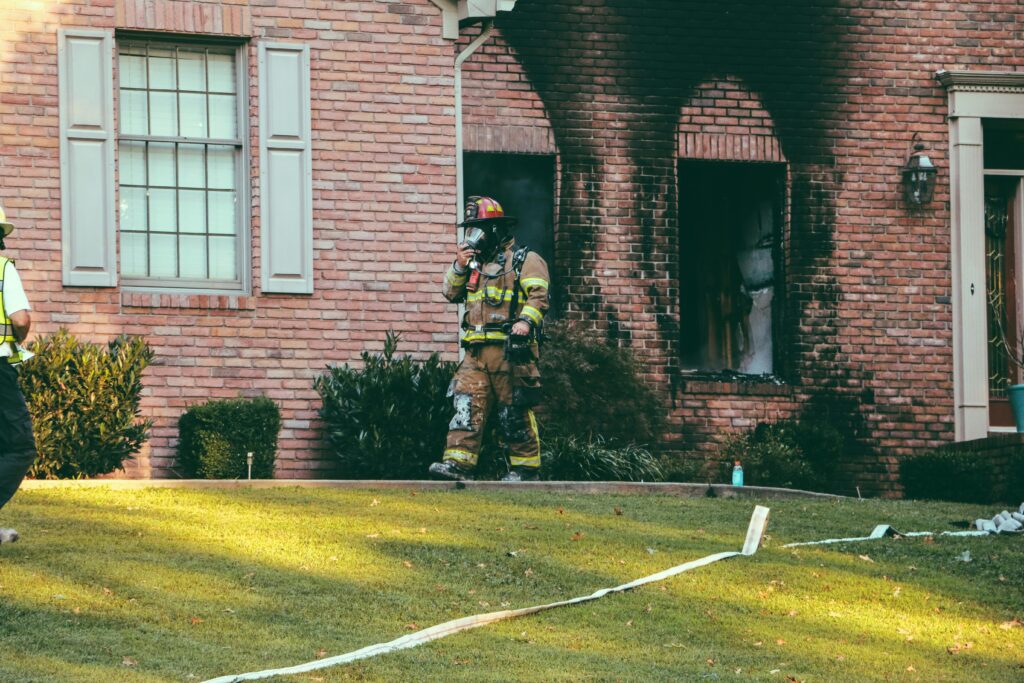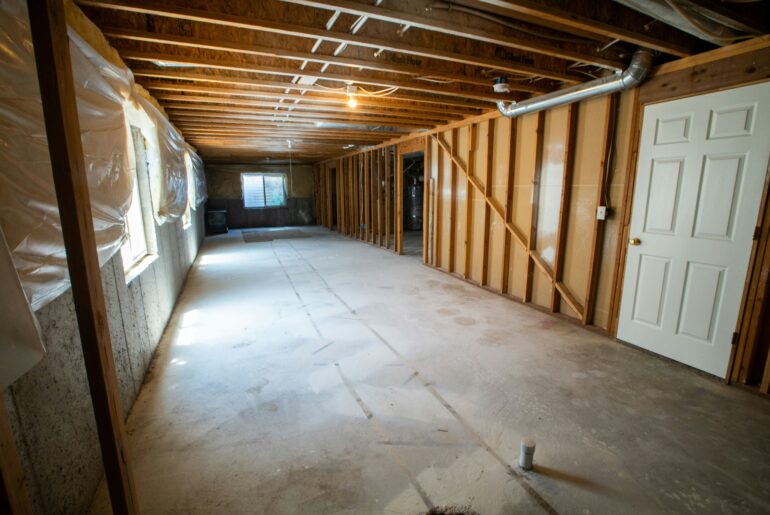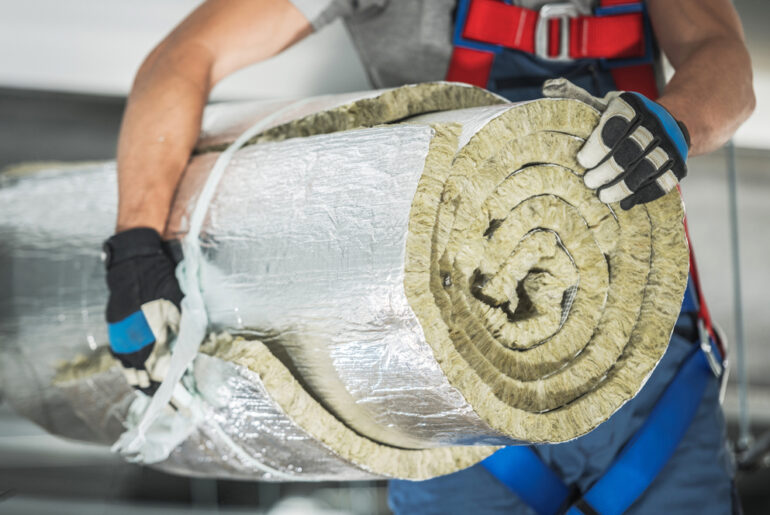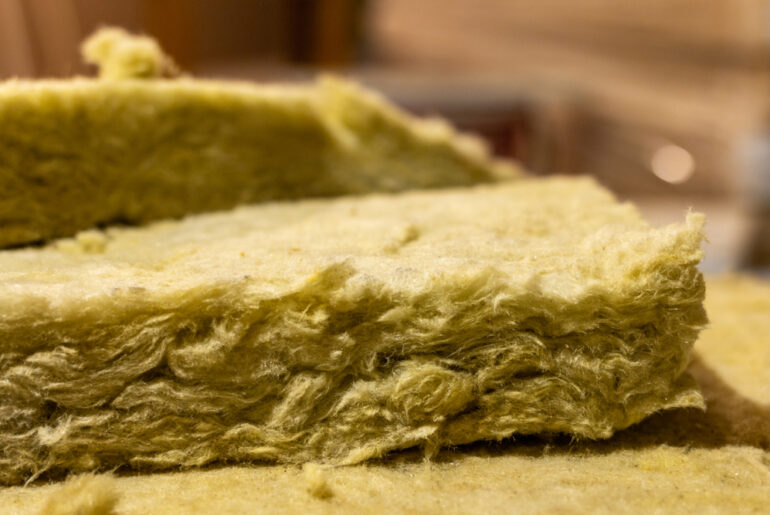If you need a quick and short answer, we’ll just tell you that, yes, rockwool insulation is fireproof. That makes it an excellent insulation choice for residential applications. However, if you want to fully understand what makes rock wool insulation a fireproof material, then keep reading.
How Is the Flammability Of a Material Measured?
The American Society for Testing and Materials (ASTM) or the International Organization for Standardization (ISO) are usually in charge of evaluating the flammability of materials. They typically use a standardized test called the ASTM E84 or ISO 5660-1 to determine the fire resistance of building materials.
Here are some methods used to measure the flammability of insulation materials:
- Flame Spread Index: The flame spread index measures how fast flames can travel over the surface of a material. How the smoke develops is also taken into consideration. The lower the flame spread index, the better. The scale runs from 0 to 200, with non-combustible materials scoring a perfect 0.
- Heat Release Rate: The heat release rate is the amount of energy released by a material when exposed to fire. It’s measured in kilowatts (kW), and specialists use a cone calorimeter or a similar apparatus to measure it.
Of these two, the flame spread index is the most commonly used method to measure the flammability of insulation materials. Its results may fall into one of the three classes:
- Class A: Materials in this class have a rating of 0 to 25. Some examples of materials in this category are gypsum wallboard and brick. These materials have a high resistance to fire and can be used in most construction applications. Rockwool is also in this category.
- Class B: The flame spread index for materials in this class ranges from 26 to 75. Plywood, particleboard, and medium-density fiberboard are some examples of materials belonging to this class.
- Class C: These materials have a flame spread index of 76 to 200. They’re considered the least resistant to fire, and some examples include plywood treated with fire-retardant chemicals and some types of carpeting.
Is Rockwool Fireproof?
Rockwool insulation has a flame spread index of 25. It is made with fire-resistant stone wool and is able to bear temperatures of over 1,000°C.
Since the insulation material doesn’t have too much organic content, it doesn’t produce a lot of smoke even when ignited. It also has a Euroclass Reaction to Fire classification of A1 or A2-s1,d0, which is based on the following characteristics:
- Heat release
- Ignitability
- Flame spread
- Smoke production
- Droplet production
Besides the Euroclass ratings and the flame spread index, Rockwool insulation also has a low smoke development. The smoke development index measures how much smoke a material produces when burned.
Its scale ranges from 0 to 100, with lower values indicating less smoke production. As compared to most other insulation materials, Rockwool has a low smoke development rating of 50. Two other materials with similar smoke development ratings are cellulose and fiberglass.
Alternatives to Rockwool: Which Other Insulation Materials Are Fireproof?
Here are some other insulation materials that boast the same level of fire resistance as rockwool.
Fiberglass Insulation
Fiberglass is often the first insulation material that comes to mind. Like rockwool, it has a smoke development index rating of 50. Its flame spread rating is also 25, just like rockwool.
Made from sand and recycled materials, fiberglass is a non-combustible material that can withstand high temperatures. It is also a good sound absorber and resistant to mold growth.
Cellulose Insulation
Cellulose insulation is made from recycled newspaper and treated with fire-retardant chemicals. It has a smoke development index rating of 50, just like rockwool and fiberglass. Its flame spread rating is also similar at 25.
Cellulose insulation is lightweight and easy to install. That makes it a popular choice for DIY projects. You can install cellulose insulation yourself if you have a free weekend and a helper. It is also environmentally friendly and helps reduce energy costs.
Mass Loaded Vinyl
Mass-loaded vinyl has the same flame spread rating of 25 as other materials mentioned above. However, its smoke development rating is 250. While it’s higher than the other three, it’s still lower than that of spray foam (450).
A higher smoke development rating means that if mass-loaded vinyl insulation does catch fire, it will produce more smoke than rockwool or fiberglass.
However, you can still use it if you plan to use a fire stop between the insulation and your walls.
Does Rockwool Ever Catch Fire?
One thing you must remember is that eventually, all materials will catch fire if exposed to enough heat. Also, improper installation or damage to the material can increase the risk of fire hazards.
However, the chances of that happening are very low with rockwool insulation. So, there’s not much to worry about.





